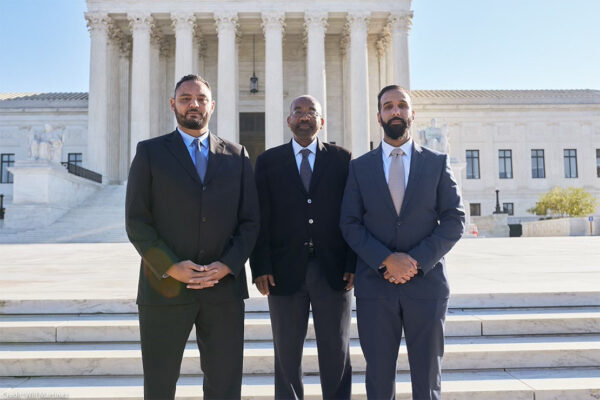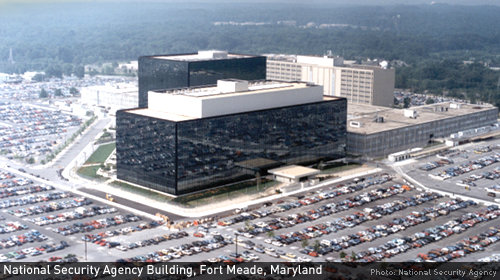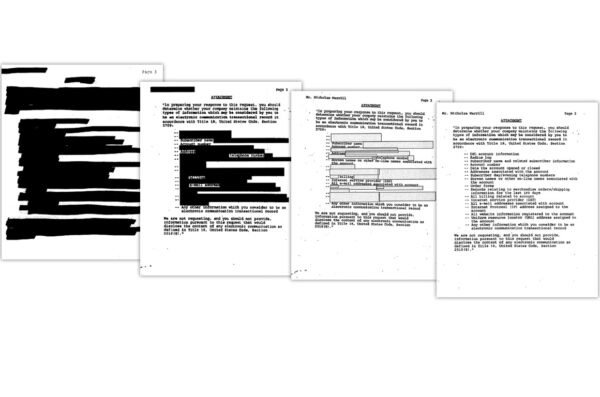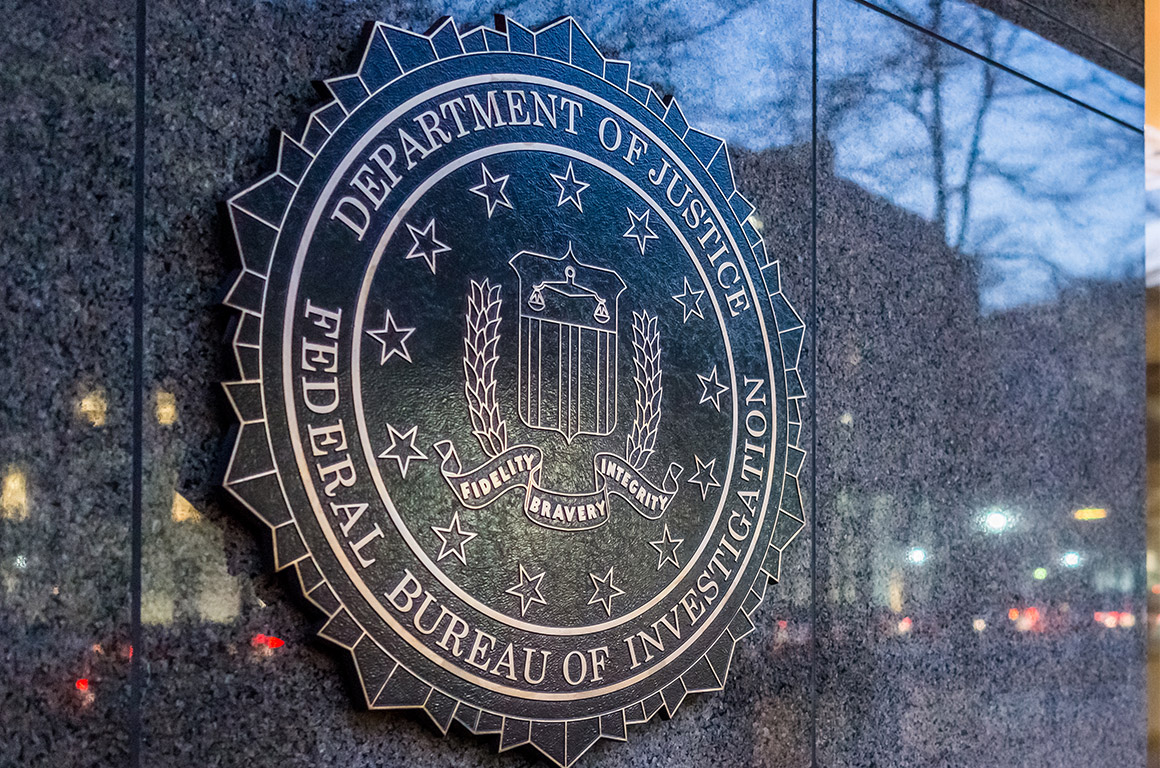Privacy and Surveillance
FBI v. Fikre
Whether the government can overcome the voluntary cessation exception to mootness by removing an individual from the No Fly List when the government has not repudiated its decision to place him on the List and remains free to return him to the List for the same reasons and using the same procedures he alleges were unlawful.
Status: Ongoing
View Case
Learn About Privacy and Surveillance
Featured
U.S. Supreme Court
Apr 2022

Privacy and Surveillance
+2 Issues
FBI v. Fazaga
In a case scheduled to be argued before the U.S. Supreme Court on November 8, 2021, three Muslim Americans are challenging the FBI’s secret spying on them and their communities based on their religion, in violation of the Constitution and federal law. In what will likely be a landmark case, the plaintiffs — Yassir Fazaga, Ali Uddin Malik, and Yasser Abdelrahim — insist that the FBI cannot escape accountability for violating their religious freedom by invoking “state secrets.” The plaintiffs are represented by the Center for Immigration Law and Policy at UCLA School of Law, the ACLU of Southern California, the American Civil Liberties Union, the Council for American Islamic Relations, and the law firm of Hadsell Stormer Renick & Dai.
All Cases
35 Privacy and Surveillance Cases

U.S. Supreme Court
Sep 2012
Privacy and Surveillance
Clapper v. Amnesty International
Whether a federal statute that broadly expanded the government’s surveillance powers can be challenged by lawyers, journalists, and human rights organizations who face a reasonable likelihood that their international communications will be monitored under the statute and have taken prudent (and, in some cases, ethically compelled) steps to safeguard against that risk.
Explore case
U.S. Supreme Court
Sep 2012

Privacy and Surveillance
Clapper v. Amnesty International
Whether a federal statute that broadly expanded the government’s surveillance powers can be challenged by lawyers, journalists, and human rights organizations who face a reasonable likelihood that their international communications will be monitored under the statute and have taken prudent (and, in some cases, ethically compelled) steps to safeguard against that risk.

Court Case
Aug 2012
Privacy and Surveillance
National Counterterrorism Center (NCTC) FOIA
The ACLU has filed three Freedom of Information Act (“FOIA”) requests to learn more about new guidelines governing data-mining by the National Counterterrorism Center (“NCTC”). Under the new guidelines, the NCTC may aggregate entire federal databases that are “likely to contain significant terrorism information” even if they consist mainly of information about Americans who have no connection to terrorism. They can then store, analyze, and share that data for up to five years. These guidelines expose every American to unjustified government scrutiny.
Explore case
Court Case
Aug 2012

Privacy and Surveillance
National Counterterrorism Center (NCTC) FOIA
The ACLU has filed three Freedom of Information Act (“FOIA”) requests to learn more about new guidelines governing data-mining by the National Counterterrorism Center (“NCTC”). Under the new guidelines, the NCTC may aggregate entire federal databases that are “likely to contain significant terrorism information” even if they consist mainly of information about Americans who have no connection to terrorism. They can then store, analyze, and share that data for up to five years. These guidelines expose every American to unjustified government scrutiny.

Court Case
Apr 2010
Privacy and Surveillance
American Academy of Religion v. Napolitano - Case Profile
(formerly American Academy of Religion v. Chertoff)
Explore case
Court Case
Apr 2010

Privacy and Surveillance
American Academy of Religion v. Napolitano - Case Profile
(formerly American Academy of Religion v. Chertoff)

Court Case
Jan 2010
Privacy and Surveillance
American Sociological Association et al v Clinton
(formerly American Sociological Association et al. v Chertoff)
Explore case
Court Case
Jan 2010

Privacy and Surveillance
American Sociological Association et al v Clinton
(formerly American Sociological Association et al. v Chertoff)

Court Case
Nov 2009
Privacy and Surveillance
Doe v. Holder
The National Security Letter (NSL) statute, which was expanded through the USA Patriot Act, allows the FBI to use NSLs to demand personal customer records from Internet Service Providers without any prior court approval or suspicion of any kind.
Explore case
Court Case
Nov 2009

Privacy and Surveillance
Doe v. Holder
The National Security Letter (NSL) statute, which was expanded through the USA Patriot Act, allows the FBI to use NSLs to demand personal customer records from Internet Service Providers without any prior court approval or suspicion of any kind.
